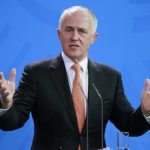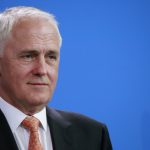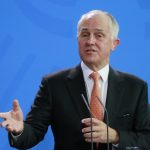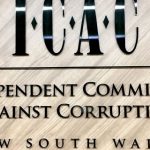Hands Off Our Charities: An Interview With Pew Charitable Trusts’ Dr Barry Traill

On the same day, the House of Representatives was passing a law to legalise same-sex marriage in Australia, the Turnbull government was introducing a bill before the Senate that will stifle the advocacy work that Australian charities and not-for-profit organisations carry out.
The Electoral Legislation Amendment (Electoral Funding and Disclosure Reform) Bill 2017 (the EFDR Bill) has been framed as a piece of legislation that has the primary purpose of restricting foreign donations in order to reduce the risk of international influence on the electoral process.
However, the EFDR Bill will also effectively gag non-profits and charities, as it sets up a series of provisions that will make it difficult for these organisations to speak out on matters directly related to their purposes, whilst it also places restrictions on their ability to receive funding.
The usual doublespeak
“This bill does not restrict the ability of charities to receive foreign gifts for non-political purposes,” said finance minister Mathias Cormann during the second reading speech on the bill. “Nor does it restrict the political activities that charities can engage in with contributions from Australians.”
But, a range of advocacy work that is currently permitted to receive funding from overseas, will no longer be eligible to. And this is due to a general broadening of what is classed as political expenditure.
And while local contributions might not be restricted in their application to this sort of advocacy work, a new hurdle has been placed in the way of these donations that looks set to hamper their flow.
Misguided provisions
The Joint Standing Committee on Electoral Matters is currently conducting an inquiry into the EFDR Bill. And it will be reporting its findings by March 2.
The Human Rights Law Centre said in its submission to the inquiry that it supports the bill’s objective of improving the integrity of the Australian electoral system by increasing accountability of those involved in political finance.
However, the centre calls into question the restrictions the legislation places on donations from independent international philanthropic organisations that have no suspect connection to any foreign government.
Preventing vital work
The Hands Off Our Charities campaign is an alliance of Australian charities that’s raising concerns about the implications of the bill. The coalition is comprised of 24 charities, including Oxfam and the Australian Council for International Development.
The alliance has made clear that the changes “would limit funding for life-saving medical research, access to education, the voice and rights of Indigenous Australians, and the ability to sustain and protect our shared natural environment.”
Another of the registered charities in the alliance is Pew Charitable Trusts. It’s a global organisation that works with Indigenous people, conservationists, and government to conserve and manage the Australian outback.
Sydney Criminal Lawyers® spoke with Dr Barry Traill, the Australian director of Pew Charitable Trusts, about the threat to advocacy work, the impact of the broadened definition of political expenditure, and the chilling effect the changes will have on the sector.
Firstly, Dr Traill, the EFDR Bill would place unprecedented restrictions on commentary and advocacy on public issues by Australian charities and non-profit organisations.
So, in a practical sense, how will these changes affect these organisations?
Any entity that makes public comments or any form of advocacy on any public issue to any substantial degree will need to register with the Australian Electoral Commission. And then a whole range of constraints, blocks and regulations apply.
For example, you need to appoint a financial controller, who is responsible for delivering information to the Electoral Commission.
Senior staff must register if they are members of a political party, which seems an extraordinary intrusion.
And donations of over $250 to the charity or entity will need to be registered or proved in some way that they are actually from an Australian citizen, and not from a noncitizen.
Prior to the introduction of the EFDR Bill, another piece of legislation that amended the Commonwealth Electoral Act 1918 was passed in September last year.
It broadened the scope of what’s deemed “political expenditure,” so that it now includes “the public expression of any views on an issue that is, or is likely to be, before electors in an election.”
What are the implications of this broadening of what counts as political spending for Australian charities and non-profit organisations?
It will conflate political parties and entities doing explicit electioneering work with normal businesses commenting on industrial relations, tax or trade policy, as well as churches or charities commenting on public policy of any sort.
It will conflate those two things as if they are one and the same. Australians will see that there’s a material difference between them.
Between someone saying, “Vote for me. We’re good guys. I want to go into parliament,” and another person saying, “We need better tax policy in this way. We need better support for Indigenous people.”
It’s broadening and conflating two things that have previously been quite separate.
So, if an organisation is speaking out about an environmental issue, that will somehow be lumped in with someone overtly campaigning for an election.
Yes. A specific example is with our work. We work closely with Indigenous communities in remote Australia. This has tripartisan support from all the parties.
They do great work looking after huge areas of country, which benefits all Australians. And we believe they should get more support in various ways.
As part of that, we often pay the travel costs to bring Aboriginal leaders to Canberra, where they talk from their own experience directly to decision makers. They are often from communities that are very poor and from organisations that don’t have the dollars to do that themselves.
That would be classed as political expenditure, because we are putting dollars into a space, which is commenting on a public issue that could be an issue in an election, as Indigenous issues are sometimes issues in elections.
We would then be classed in the same class as if we were saying, “Go out and vote for Party X.” And we think that is silly.
The EFDR Bill would force an organisation to register with the Australian Electoral Commission as a “political campaigner” if it has spent more than $100,000 on “political expenditure” in the last three financial years.
What sort of effect will registering as a political campaigner have on charities and non-profits? And what sort of changes will it bring about to the way such organisations operate?
First of all, there’s the enormous red tape, associated blocks, and constraints.
With the example I just gave, in that case our funding for our work with Indigenous people is sourced overseas. And our take on the bill is that we would no longer be able to do that work, because that funding would be cut off.
And other charities have got many similar examples. The Gates Foundation funds a lot of advocacy around communicable diseases that would be blocked, because it’s doing advocacy in a public space.
There would be blocks on international philanthropy. There would be enormous amounts of time spent dealing with red tape for even using Australian-sourced dollars.
And importantly, they’d be a chilling effect, because many charities do a mixture of on the ground direct work and advocacy.
Many directors have said to me, “We will now go into this onerous space where we have to register if we make public comment. We will now go into this dark hole of regulation and constraints.”
Also, being classed as a political campaigner implies that you are political party partisan, when you’re not. There’s implications to this.
Any common reading of that will be that the Uniting Church is classed as a political campaigner. Or the organisation that does Choice magazine will be classed a political campaigner.
The RSL, the Red Cross, Anglicare, and the Australian Conservation Foundation will all be classed as political campaigners, when they are clearly not by any normal definition.
That is potentially harder to quantify, but it will have a very real impact on chilling and discouraging groups from making appropriate public comment on issues which they are expert on. And from standing up for the people they represent, for disadvantaged groups, and the environment.
The main framing of the bill was to restrict foreign donations in order to reduce the risk of foreign influence over the electoral process.
But, it seems that in being classed as political campaigners some charities and non-profit organisations will no longer be eligible to receive foreign donations for the work they do.
Yes, that is the implication. International philanthropy would be choked.
Also, under the Charities Act 2013, registered charities are not permitted to promote or oppose political parties or candidates.
However, if the new legislation is passed, many charities could then be classed as political campaigners that are incurring political expenditures.
Could this have an impact on these organisations maintaining their charitable status?
That’s a concern. And this is where it’s very murky space. I’m directing an organisation that is a registered charity. And as a registered charity, we’re quite reasonably regulated by the Australian Charities and Not-For-Profits Commission.
One of these regulations is that I cannot advocate. I can’t be party partisan. This is fine and reasonable. And I haven’t met a charity leader that thinks otherwise.
But then, under the EFDR Bill, I’d be classed as a political campaigner. Now, at best this is confusing, and at worst, it provides an opportunity for anyone who perhaps doesn’t like a comment from a charity to attempt to use that.
They could say, “We don’t like your comments. You are registered as a political campaigner, perhaps we should look at your charitable status.”
The bill also requires charities and not-for-profits to obtain a statutory declaration from individuals who donate more than $250 to a charity over a year, which is as little $4.80 a week.
This requires a donor to declare they are an “allowable donor” and have a justice of the peace or a police officer witness the declaration.
What sort of an effect do you foresee this provision having?
That could have the most impact. Many charities rely heavily on the generosity of people who are often not that well off, but dig deep and put in a few hundred dollars.
So, to someone who has gone online and decided to give generously, you then have to send them an email saying, “Thanks. But, could you go and find a JP, print off this document, and sign it.” It’s just not real.
A small proportion of people might be prepared to go off and do that. But, it is weird, and confusing. And people will say, “I’m sorry. This is too much bother. And it is quite strange.”
And lastly, the bill sets up a lot of red tape for charities to have to comply with, and then it establishes some rather harsh penalties for failing to do so.
The maximum penalty is up to 10 years imprisonment or a fine of $210,000.
Does this all feel like a trap designed to catch out charities and not-for-profit organisations?
A key thing here is that, this is not just about charities. This is also about businesses, not-for-profits, and churches. It’s about any entity and individual, who for good reason, as part of the democratic process, has decided to comment.
Obviously, as a charity leader, I’m working with other charities on it. But, the thing that’s become very clear is that it’s not just about us, it is also about businesses.
It’s about anybody, who is putting in any significant amount of resources: more than $13,500. And if you include paid time for staff, and a bit of travel, in the space where you are making public comment, it’s a very low bar and it catches everybody.
That’s the thing I don’t think people quite realise yet.







